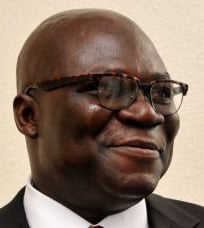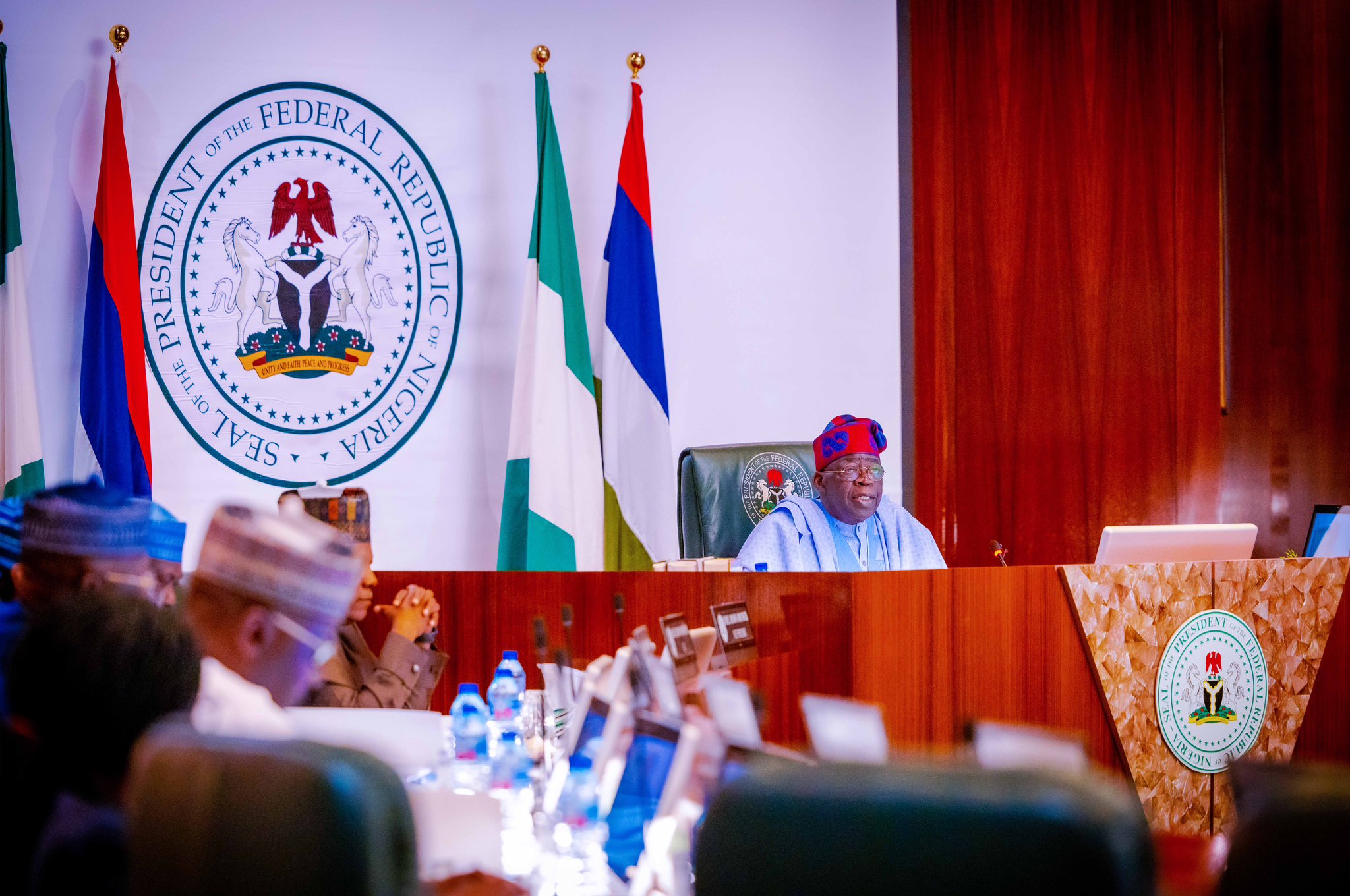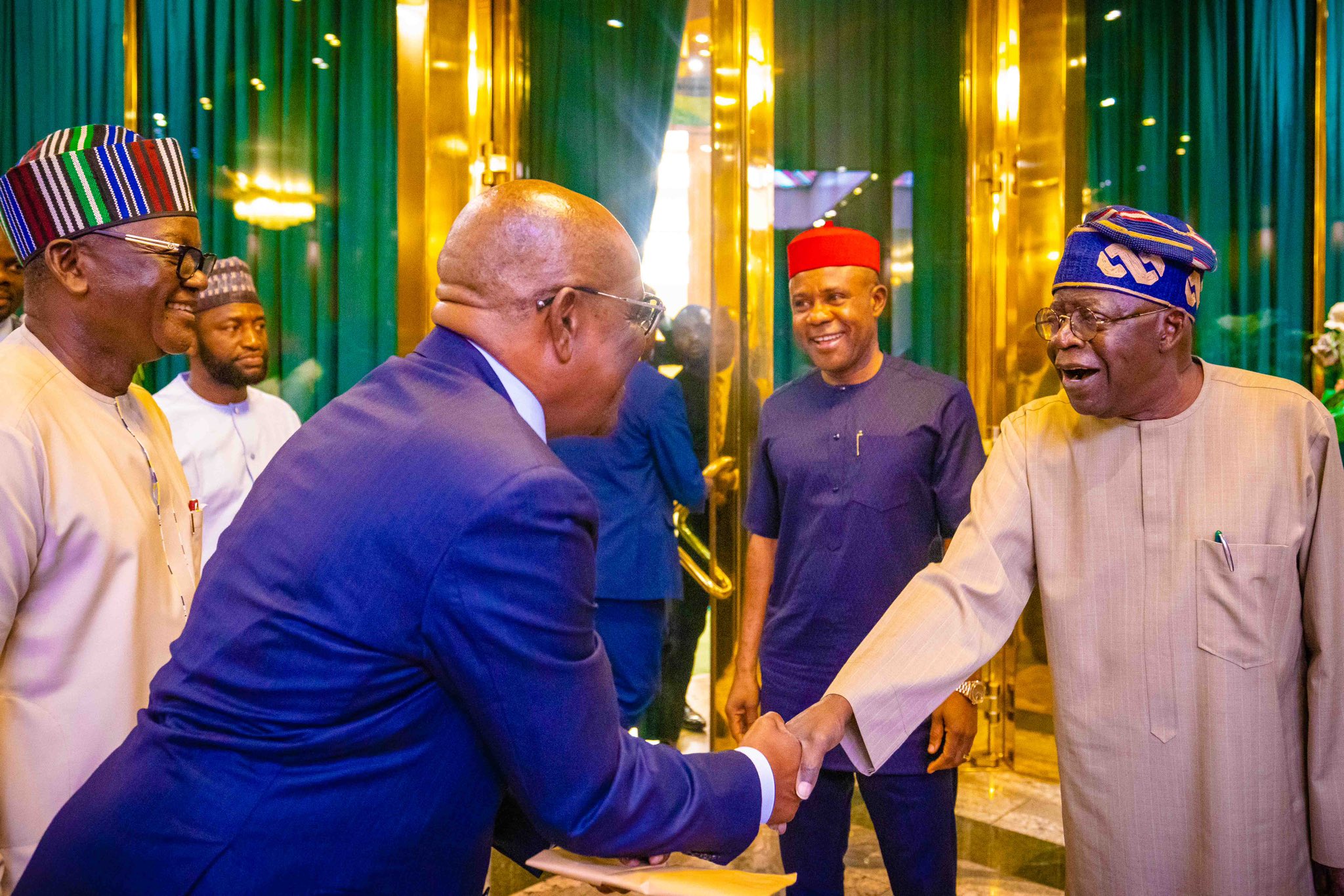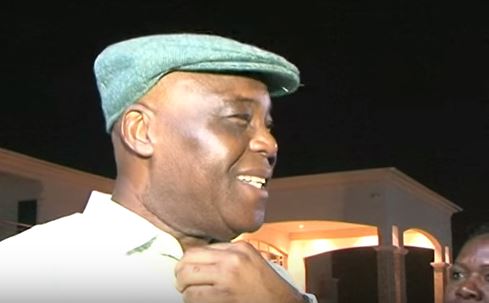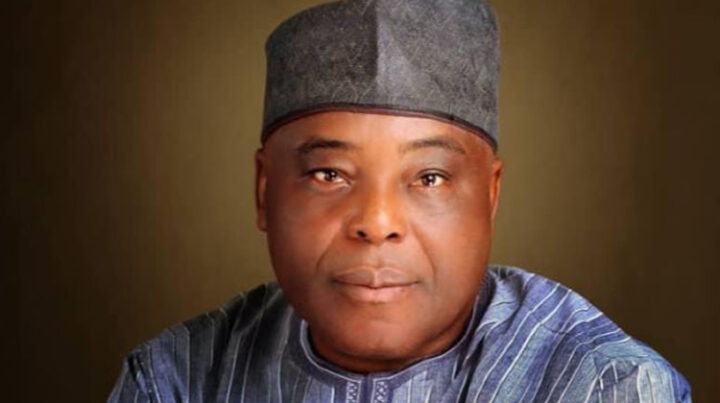Tinubu in the presidential villa
There has been so much talk of late about the ministerial appointments that President Bola Ahmed Tinubu is about to make. Given the fast-paced style of governance that he has adopted so far, it is expected that he would not waste time in coming up with a list of cabinet ministers. The 1999 constitution vests the president with executive powers under Section 5(1)(a) and in other parts of that basic document to hire and also fire, if need be, persons who would assist him in the discharge of his functions as president and commander-in-chief.
The Nigerian president is, in fact, in a position to dispense as many as 5,000 patronages, the powers vested in his office and person are enormous and expansive. But of all appointments, the composition of the federal executive council of the federation is critical as seen in Sections 144(5) and 147 of the 1999 constitution. In Section 147 (3), the constitution says expressly that ministerial appointments “shall be in conformity with the provisions of section 14(3) of this constitution: Provided that in giving effect to the provisions aforesaid the president shall appoint at least one minister from each state, who shall be an indigene of such state”.
Thus, every state is entitled to have at least one minister in the federal cabinet and this probably explains why there has been so much hustling and jostling by a band of aspirational office seekers, sycophants and rent-seeking characters who have been pushing and shoving to get a ministerial appointment. It is so bad that some emergency civil society groups, obviously sponsored, have been quite vocal in making specific recommendations. Some outrightly shameless ones have gone on media platforms to recommend themselves to the president openly. I have also seen a statement by persons purporting to be defending the interest of the indigenous people of the federal capital territory insisting that an indigene of the FCT must be made a minister quoting Section 299 of the constitution. Individuals and media platforms have also announced their own choices, including partisan lobbying for some former governors who probably need a ministerial appointment at the centre to remain relevant, not to mention the large crowd of party stalwarts, henchmen, and supporters who believe that they or their children or associates must be compensated with federal appointments.
Every Nigerian politician seeking an elective position invariably chalks up IOUs, for which other persons expect to be compensated with appointments, contracts or access. It is the reason why government appointments are more or less, “job for the boys”. In the last dispensation, one governor appointed over 400 aides. A certain special adviser was put in charge of groundnut oil! In the present administration, the speaker of the house of representatives, Tajudeen Abbas, has already announced the appointment of 33 legislative aides. Is Dr Abbas such an “invalid” that he needs up to 33 aides?
Advertisement
President Tinubu certainly has many IOUs to settle, but he must not do that with appointments to the federal cabinet. Every person that he seeks to appoint must be competent, capable and fit for purpose. He may strike a balance between technocrats and politicians, but even in doing so, nobody should show up on that list simply because they know the right people or out of a sense of entitlement. Tinubu’s ministers must not be persons who are ready to genuflect to get a title simply because they are out of a job. Nigeria is in need of a renaissance, a complete overhaul. We cannot achieve that objective with a cabinet of average people. It is still too early to forget what Nigeria went through in the past eight years under President Buhari. Most of the ministers who served under him were great unknowns. They stayed in office for eight years, sleep-walked through office, and on top of that they were decorated with national honours! The few ones who made an effort got noticed of course simply because it is always easy to stand out in an ocean of mediocrity. No other federal cabinet was that lacklustre since Nigeria’s return to democracy in 1999.
Tinubu cannot afford to go in that direction. He must give direction from the front, not from the rear. The quality of his appointees would enable us to know the actual quality of his own mind. Usually, it is part of the process that governors and party leaders in the various states would nominate persons to the president to appoint as ministers. Tinubu must be suspicious of such recommendations. What we have seen is that state party chieftains and governors usually send to Abuja, persons who they do not believe would have the capacity to challenge their authority back home. It is easier for an average character to make it to the nomination list than a person of great ability and substance. This is why the president must screen his own nominees thoroughly before submitting their names for consideration. Nobody should be made a minister who does not have demonstrable ability. The federal cabinet cannot be a forum for the gathering of the tribes, or party agents, boys and girls who would be too willing to do the president’s bidding. They must be men and women who can tell the president what is right, not yes-men, not one of those clowns in the corridors of power who will kneel down at every opportunity for the president or crawl on all fours before him, as was once reported.
President Tinubu must send the right signal by departing from the old mode of nominating persons for ministerial appointments. When he sends the names of his nominees to the senate for screening in line with Section 147 (6), he should attach the exact portfolios for which a particular nominee is being considered. To date, the screening of ministerial nominees has been a complete charade. Questions that are posed to the persons being screened may have no bearing whatsoever with the portfolio that would be assigned to them eventually. This creates room for a resort to inane and jejune questions such as “Who is the governor of your state?” as if the nominee is expected not to know the name of his state governor. Or something like singing the national anthem, or reciting the national pledge. This must stop, otherwise, these Nigerian senators would start asking such questions as what is your favourite food? Or have you renewed your birth certificate? Yes. Now that the federal government wants Nigerians to renew the proof of ownership of their vehicles every year, we may soon get to a ridiculous point where both birth and marriage certificates may have to be renewed annually so the government can gain more revenue! For ministerial appointments, nominees must be engaged in specific areas to determine their knowledge level and expertise, and their policy plans with well-thought-out timelines, and key performance indicators. Nobody should insult our intelligence with the kind of hollow ritual that ministerial screenings have become.
Advertisement
The senate must not abdicate responsibility. It took the Israelites 40 years to get to the promised land. Nigeria cannot continue to beat about the bush. The senate must not clear anybody for clearing sake. It must look out for nation-builders, and change agents who can add value to the growth and development process. The screening must be thorough and meaningful. The senate must not rely on the wisdom of its own members alone, it must seek the services of subject-area experts who can help prepare relevant questions. In the past, some ministerial nominees who had served in the national assembly or as state governors were asked to simply bow and go. This must not be the case this time around. We don’t want ministerial nominees bowing like ostriches. The whole idea of our recommendation is to allow all Nigerians to watch the process on live TV, and express opinions. Whoever is not good enough should be rejected by the senate.
As he prepares to announce his list of ministers, President Tinubu should pay attention not just to federal character, in selecting the best and the brightest, he must ensure inclusion, equity, and gender justice. He must look beyond party affiliations and select only those who can serve with distinction, across party lines, locally and from among the rich human resource that Nigeria has in the diaspora. He must include young persons, and also persons living with disability who are often discriminated against unfairly in this country. The size of the cabinet is another issue. The constitution already prescribes that all 36 states must be represented, and if you add the FCT as is being canvassed, that gives us a total of 37 ministers. But is it compulsory that a minister must head a ministry? Is it possible to tweak the designations in such a way that some ministers can be ministers in charge of departments and agencies and still be cabinet members? It is something that can be given some thought.
The objective is to have a compact, effective team, and reduce the cost of governance. The Tinubu administration in this regard would have to visit the Oronsaye Report. Nigeria’s federal government is over-bloated. It needs to be trimmed down to cut away fat, wastages and leakages, and thereby reduce cost. Tinubu has shown so far that he can summon the courage to take hard decisions. This is one more hard decision that he needs to take for the people’s benefit. At the sub-national level, state houses of assembly must discourage governors from seeking to appoint hundreds of aides.
Not everyone can be appointed a minister. Those who would eventually make the final list must see the opportunity to serve their country at the ministerial level as a major recognition and must then devote themselves strictly to serving Nigeria. They must not end up as ministers looking out only for narrow, ethnic and geographical interests. The other day, I was shocked to listen to an elder statesman berating the minister from his home state for failing to divert federal government projects to his state. It is not for nothing that the cabinet is tagged “Executive Council of the Federation” and nowhere in the oaths of office/allegiance is it stated that a government official shall use his or her office to pursue parochial interests. When the government is formed, the ministers should be able to have access to the president, not just at council meetings but whenever they need to engage with him. It is strange to hear that in more recent years, some ministers did not have access to the president. Some of them probably never met him one-on-one. Nigeria cannot afford to have ministers who would go to Abuja to sleep on the job and warm the chair. It would be Tinubu’s responsibility to keep everyone on their toes and set specific, measurable targets for performance.
Advertisement
II: Signs of the times
The times have indeed changed indicating how policy shifts can affect people’s moods and habits and the environment in which we live. Following the removal of fuel subsidy and the harmonisation of the foreign exchange regime, Nigerians have been compelled to make radical changes in how they live. Has anyone noticed the sharp reduction in the number of vehicles on Lagos roads and the disappearance of traffic gridlock in some parts of the city? With fuel now selling between N488 -N570 per litre across the country, it costs some people up to N40,000 or more to fill their vehicle’s fuel tanks. Within the same period that the cost of fuel has increased, electricity has also become very expensive, even if the electricity companies are still threatening to hike their tariffs. Inflation is as high as 22.41% and would most certainly continue to rise.
Vehicle owners have learnt to choose their travels within the city carefully, gone are those days when it was fashionable to drive here and there. We are all going through a season of serious adjustment. In many homes, the light is switched on only when it is needed to check the meter from going haywire. And yet in this same country, once upon a time, you could switch on all the lights in your apartment and even leave those lights on when not at home. Nobody can afford to do that anymore. The street as they say in popular lingo is not smiling. Salaries have not been increased, the price of everything including tomatoes and onions has gone up, and a loaf of bread which used to be a common man’s favourite is now an expensive item on the family menu. Last week was the annual Eid-el-Adha, the festival of sacrifice. Very few families could afford to buy and slaughter rams. A moderate-sized ram was about N175,000 — that used to be the price of a very big cow. To buy a cow now, these days, you’d need close to N500,000.
In those days, around the Eid-el-Kabir festival, it was possible to see young children going to the field with the rams that their parents had bought for the occasion. There was something called ram fight: an exciting game whereby rams are set against each other to head-butt one another. The rams had names and there was a prize for the champion ram. It wasn’t all fun, some rams that went up against a tough challenger could simply slump and die. I didn’t see any young men fighting with rams in open fields this year. No parent would even have allowed anybody to gamble with a ram of N175,000. It was generally a very moderate celebration around town except in Ijebu Ode where the usual post-Ileya Ojude Oba was held as is the tradition, three days after the festival. The Ojude Oba lived up to its reputation as a cavalcade of colour, music, dance, and memorable advertisement of the richness of Yoruba culture and artistry. I noticed though that many of the persons that I know who used to stay behind in Ijebu-Ode for days after the festival quickly rushed back to Lagos.
Advertisement
One of them confessed that the times have truly changed. His landlord had just served notice that the rent in the building where he lives would go up by 200% by January 2024 due to the rising cost of building materials and the depreciation of the Naira. He rushed back to Lagos to engage the landlord wondering how the landlord of a house built more than two decades ago can possibly complain about the high cost of building materials. The man told my friend that we are now in the era of market forces, and that rent is also subject to the forces of demand and supply. We have been on that matter since last week!
Advertisement
Views expressed by contributors are strictly personal and not of TheCable.
Add a comment
